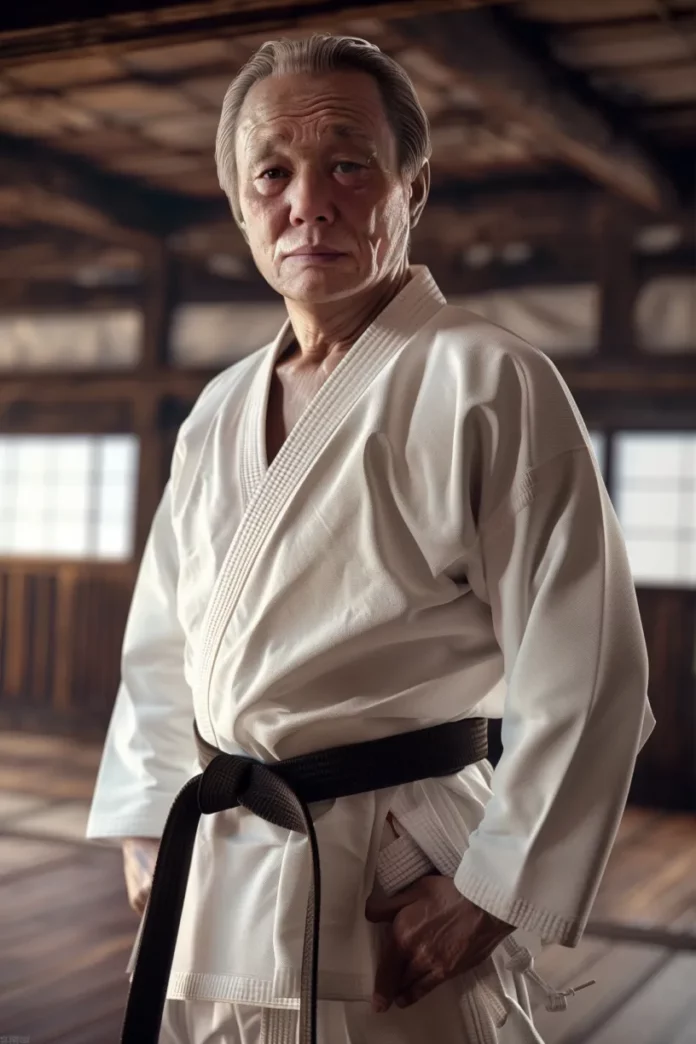This Content Is Only For Subscribers
The Legend Begins
In the heart of Korea, amidst political upheaval and cultural transformation, a martial arts prodigy named Hwang Kee embarked on a journey that would forever change the landscape of traditional combat practices. Born on November 9, 1914, in Jang Dan, Korea, Hwang Kee was not merely a martial artist; he was a visionary. His early exposure to martial arts sparked a lifelong passion that led to the creation of Tang Soo Do, a discipline that combines the dynamic power of karate with the fluid grace of Chinese martial arts and traditional Korean combat techniques.
Crafting a Legacy
As a young man, Hwang Kee’s thirst for knowledge was insatiable. He traveled extensively, studying various martial arts forms, including Soo Bahk Do, a Korean art with deep historical roots. However, it was during his time in China that he encountered the flowing movements and strategic mindset of Chinese Kung Fu, which greatly influenced his martial philosophy.
In 1945, as Korea was emerging from the shadows of Japanese occupation, Hwang Kee founded the Moo Duk Kwan, a martial arts school that would become the bedrock of Tang Soo Do. His vision was clear: to create a martial arts style that was not only effective in combat but also rich in moral values, fostering respect, discipline, and a sense of community among its practitioners.
Tang Soo Do Today: A Testament to Its Founder
Today, Tang Soo Do stands as a monumental tribute to Hwang Kee’s pioneering spirit. It is a martial art that emphasizes self-improvement, not just physically but mentally and spiritually. Through the practice of Tang Soo Do, practitioners learn more than just fighting techniques; they embark on a path of personal development, enhancing their confidence, perseverance, and respect for others.
Hwang Kee’s influence extends beyond techniques and forms. He instilled a philosophy that makes Tang Soo Do unique among martial arts. It’s not just about defense; it’s about developing a harmonious spirit and a respectful demeanor. His teachings continue to resonate within the community, emphasizing the importance of personal integrity and the pursuit of knowledge.
Why Tang Soo Do? Hwang Kee’s Foundational Philosophy
But why did Hwang Kee found Tang Soo Do? His reasons were both personal and profound. Hwang Kee believed in the transformative power of martial arts. He saw it as a tool not just for individual empowerment but also for societal improvement. In the aftermath of war and colonization, he recognized the need for a unifying force that could help rebuild a fractured nation and restore cultural pride. Tang Soo Do was his answer to these challenges.
Hwang Kee’s creation is not just a martial art; it’s a living philosophy. It teaches balance, control, and respect, reflecting the harmony between mind and body that Hwang Kee revered. It’s a testament to his understanding that true strength comes from harmony and balance, not just physical prowess.
The Spirit Lives On
Hwang Kee passed away on July 14, 2002, but his legacy is eternal. Tang Soo Do continues to grow, spreading across continents and touching the lives of millions. It stands as a beacon of the enduring strength and wisdom of its founder, shaping not just fighters but builders of a more disciplined and respectful society.
In essence, Tang Soo Do is more than a martial art—it is Hwang Kee’s enduring gift to the world, a means through which he continues to teach, inspire, and lead. It’s a pathway to understanding oneself and developing an unbreakable spirit, and it’s all thanks to one man’s unyielding commitment to his vision and values.






